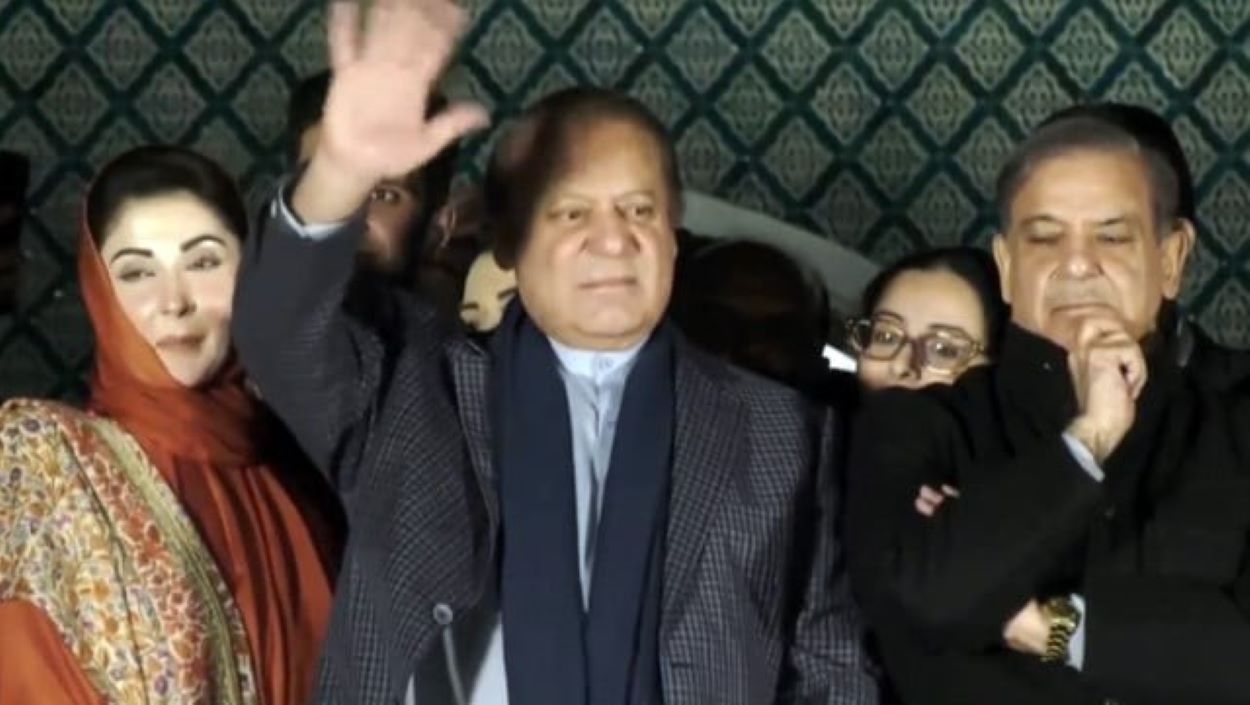Nawaz Sharif, the leader of the Pakistan Muslim League-Nawaz (PML-N), has invited all political factions for a collaborative effort to establish a government to guide Pakistan through its current adversities.
Declaring his party the frontrunner in the 2024 elections, in an address ahead of the official completion of the vote count by the Election Commission of Pakistan (ECP) for the February 8th elections, Sharif emphasized the impracticality of frequent elections and called for unity in addressing the nation’s crisis.
Sharif expressed optimism, lauded his party workers, and asserted PML-N’s emergence as the nation’s largest political force in this electoral cycle. He articulated his party’s commitment to honouring the electorate’s decision, including that of independent candidates, urging collective action to heal and rebuild the nation.
With a vision focused on prosperity for Pakistan, Sharif recollected his party’s historical contributions to the nation’s development. He underscored the urgency for political unity in forming a government to navigate the country out of its challenges, promoting a message of solidarity and collective responsibility for national welfare.
In light of the prevailing conditions, Sharif argued against political conflict, citing the nation’s dire need for a decade of stability to foster growth and recovery. He disclosed initiatives to form a coalition government, mentioning outreach efforts directed by his brother, Shehbaz Sharif, towards key political leaders, including the PPP’s Asif Ali Zardari, JUI-F’s Fazlur Rehman, and MQM-P’s Khalid Maqbool Siddiqui.
The discussions, set to involve Shehbaz Sharif and Ishaq Dar, aim to build consensus for governance. Sharif highlighted PML-N’s electoral success at the federal and Punjab levels, affirming a commitment to serve both domains effectively.
Underlining foreign relations as a priority, Sharif expressed a desire for amicable ties with global nations, particularly neighbouring countries, to ensure Pakistan’s positive engagement on the international stage.
The electoral process saw widespread participation despite challenges, including a nationwide internet and mobile service shutdown, political unrest, and security threats, with many candidates vying for seats across various legislative bodies.
The ECP’s ongoing tally reveals independent candidates leading in numerous constituencies, followed by a strong showing from PML-N and other parties. The results, still unfolding, promise to shape the political landscape significantly in the coming term.






